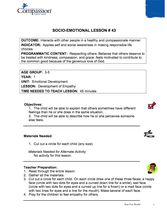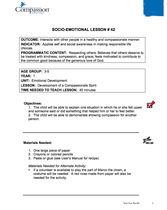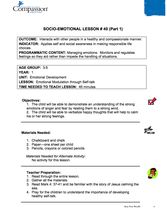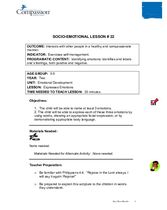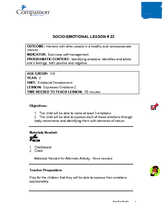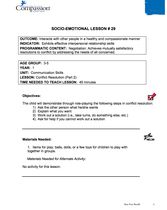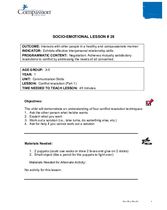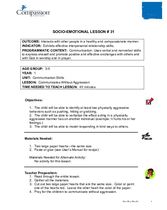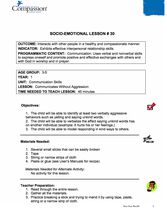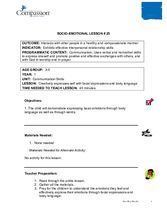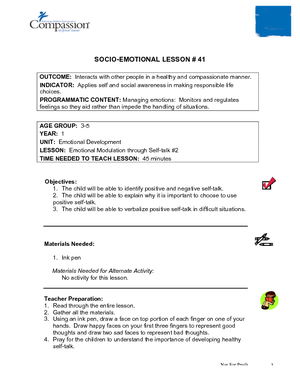
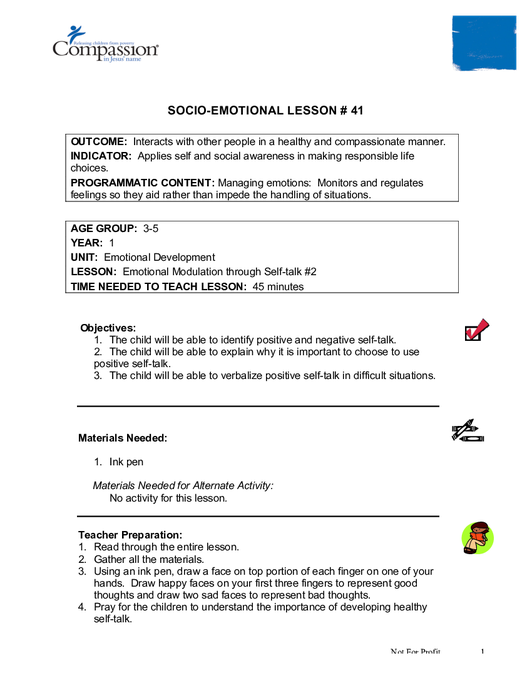



You must be a member of the ForChildren.com community to download resources. Click the buttons below to sign in or sign up!
| Category | Socio-Emotional Development |
| Copyright Owner and Year | Compassion International, 2015 |
The lesson “Emotional Modulation Through Self Talk #2” teaches children about the importance of social and self-awareness, including feelings and reactions based on developing Godly character. Following the previous lesson on self-talk, children better able to identify the difference between positive and negative self-talk and the outcomes of both. Each child will be able to explain why it is important to choose and use positive self talk and will be given strategizes to help verbalize positive self-talk in difficult situations. The lesson includes guided instructions for the teacher, including preparation, a script, and suggested activities to facilitate further learning in a fun and interactive manner. This lesson is designed for children between 3-5 years, and is the 41st lesson in the 1st Year Core Curriculum Set and part of the “Emotional Development” unit.
